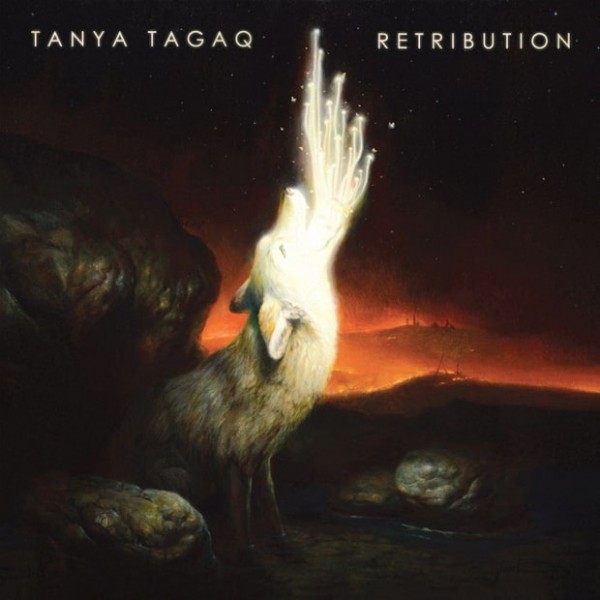Retribution is the fourth album of Tanya Tagaq’s career, one in which she has spent much time confronting difficult issues such as Native American rights and working with artists as varied as the Kronos Quartet and Mike Patton. Tagaq is also lauded in her home country, having won both the Juno and Polaris awards, the Canadian equivalents of the Grammy and Mercury Prizes respectively.
If you haven’t heard Tagaq’s music before it may come as a bit of a shock. She employs the Inuk discipline of throat singing, a traditional method where the singer creates overtones by manipulating the airflow in their throat. In the Inuk tradition this is used mainly in duets by the women of the tribe but Tagaq duets with herself, using overdubs to pile on layers of rhythmic animalistic sound.
The album opens with ‘Ajaaja’, a brief track featuring a male voice singing in a native tongue over Tagaq’s almost childlike vocalisations, quickening ever so slightly before transitioning into the slow throb of the title track. The monologue delivered on the track is cool, calm and threatening in tone, setting the mood for the rest of the album. Tagaq states that “Our mother grows angry. Retribution will be swift.” This ominous sentiment is echoed by the instrumentation, with sawing strings and distorted bass backing up Tagaq’s tremendous vocal exhortations.
Track after track of blistering vocal-led rhythmic exercises follow this, each as intense as the last. ‘Aorta’ is one highlight with Tagaq’s vocal joined by an electronic bass pulse that pulls the song along in its wake. ‘Cold Wind’ must be mentioned as well, with its continuation of the earlier monologue where Tagaq reiterates her environmentalist themes, implying that we are just guests on this planet and are vulnerable to its whims.
The one misstep on the album is ‘Centre’, a collaboration with rapper Shad. Tagaq uses her vocals as a primal beatbox with Shad rapping shapelessly about the centre of the Earth. Thematically it feels out of place on the album, failing to link well with the other tracks, while the digression into hip-hop feels clunky. When followed by the cold chill of ‘Summoning’ or the extract from a horror soundtrack that is ‘Sulfur’, ‘Centre’ doesn’t hold its own.
The album ends with a cover of Nirvana’s ‘Rape Me’, a choice which can both reference human abuses wrought on the planet and also abuses perpetrated on the Canadian Aboriginal people by the Canadian government. Tagaq plays it straight here, singing the song softly, causing the listener to focus on the lyrics and, in turn, the repeated traumas inflicted on Tagaq, her people and the planet.
This could be the most challenging album you listen to this year and while it is a difficult experience at times, it’s also a thrilling one. The songs are constantly pushing forward and evolving as Tagaq varies her vocal patterns to drive each piece to its conclusion. The message of the album, that of the damage wrought by the human race upon Earth and the retribution that the planet will seek, is ever more important in these times where climate change accords are being debated and often ignored. Darren Keane





